From Paul Griffiths, Past-President and Chair, Nominations Committee:
The Election of Officers will be conducted electronically for the fourth time, but using the 2013 method which differed from 2009 and 2011. Information on voting procedures follows the biographies of the nominees.
The Nominations Committee is pleased to present the slate for the 2015 ISHPSSB election, along with biographies and photos of the nominees. Many thanks to all who suggested names and to the members of the Nominations Committee for their diligent work. They are Marion Blute, Sabine Brauckmann, Richard Burian, Judy Johns Schloegel, Edna Suárez and Ana Barahona (Chair). We all owe many thanks to our current Officers and Council members.
In proposing nominees, the Nominations Committee strove to achieve balance with regard to field, gender, nationality, and experience. Following the precedent of years past, we decided to nominate two Program Co-Chairs, Mark Borrello and Rob Wilson. In accordance with the Society’s by-laws, we solicited nominations from the membership at large. Those nominated by two or more members, or by the Nominations Committee, and who have expressed their willingness to serve now comprise the slate. Our sincere thanks to all who have agreed to be nominated.
Nominees President-elect
Council
Secretary
Treasurer
Program Co-Chairs
Electronic Voting and the Election Process
Nominee biographies
For President-elect:
Staffan Müller-Wille
 Staffan Müller-Wille is Associate Professor in History and Philosophy of the Life Sciences and Co-director of Egenis, the Centre for the Study of the Life Sciences, at the University of Exeter (England), and also holds an honorary chair at the Institute for History of Medicine and Science Studies of the University of Lübeck. He received his PhD in Philosophy from the University of Bielefeld (1997) and subsequently worked as scientific curator at the German Hygiene Museum in Dresden (1998-2000) and the Max Planck Institute for the History of Science in Berlin (2000-2004). He has attended ISHPSSB meetings in Leuven, Vienna, Exeter, Brisbane and Montpellier, and has been active as council member and programme co-chair 2005-2007. In addition, he gained valuable experiences in running a professional society by serving on the council of the British Society for the History of Science 2008-2012 and hosting its annual conference at Exeter in 2011. He is Editor-in-Chief of the journal History and Philosophy of the Life Sciences, and has been particularly active in doctoral and postdoctoral training, serving on the board of directors of the Ischia Summer School of the Life Sciences. His research is interdisciplinary and international – as testified by fellowships in Stockholm, Mexico City, Tel Aviv, Paris and Minneapolis – and covers the history of the life sciences (including its medical varieties) from the early modern to the modern period, with a focus on the history of natural history, heredity, and genetics. Among more recent publications is a book co-authored with Hans-Jörg Rheinberger on A Cultural History of Heredity (2012) a co-edited collection on Human Heredity in the Twentieth Century (2013), and a chapter on the history of science and medicine in the Oxford Handbook for the History of Medicine (2012).
Staffan Müller-Wille is Associate Professor in History and Philosophy of the Life Sciences and Co-director of Egenis, the Centre for the Study of the Life Sciences, at the University of Exeter (England), and also holds an honorary chair at the Institute for History of Medicine and Science Studies of the University of Lübeck. He received his PhD in Philosophy from the University of Bielefeld (1997) and subsequently worked as scientific curator at the German Hygiene Museum in Dresden (1998-2000) and the Max Planck Institute for the History of Science in Berlin (2000-2004). He has attended ISHPSSB meetings in Leuven, Vienna, Exeter, Brisbane and Montpellier, and has been active as council member and programme co-chair 2005-2007. In addition, he gained valuable experiences in running a professional society by serving on the council of the British Society for the History of Science 2008-2012 and hosting its annual conference at Exeter in 2011. He is Editor-in-Chief of the journal History and Philosophy of the Life Sciences, and has been particularly active in doctoral and postdoctoral training, serving on the board of directors of the Ischia Summer School of the Life Sciences. His research is interdisciplinary and international – as testified by fellowships in Stockholm, Mexico City, Tel Aviv, Paris and Minneapolis – and covers the history of the life sciences (including its medical varieties) from the early modern to the modern period, with a focus on the history of natural history, heredity, and genetics. Among more recent publications is a book co-authored with Hans-Jörg Rheinberger on A Cultural History of Heredity (2012) a co-edited collection on Human Heredity in the Twentieth Century (2013), and a chapter on the history of science and medicine in the Oxford Handbook for the History of Medicine (2012).
Marsha Richmond
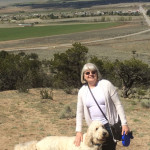 Marsha L. Richmond received a Ph.D. in the History of Biology from Indiana University in 1986, writing a dissertation on the early work of the German geneticist Richard Goldschmidt. She was an Editor on the Correspondence of Charles Darwin Project (1987-1993) and joined Wayne State University in Detroit, Michigan in 1994. Her scholarship has ranged widely on topics of heredity from Darwin through classical genetics, focusing on different areas (genetics, evolution, cell theory, evo-devo, and women in biology), national traditions (German, British, and American), and leading scientists (Charles Darwin, Thomas Henry Huxley, William Bateson, and Richard Goldschmidt). Her work on women’s entry into genetics after 1900 has provided new themes for exploration, including the rise of research institutions, the formation of research groups, interdisciplinary collaborations and gender dynamics in scientific work, as well as the scientific contributions of outstanding individuals. She has published more than 30 articles and chapters (including 3 in Isis), and completed a book manuscript, The Making of a Heretic: Richard Goldschmidt and German Genetics, 1900-1940, with another in preparation, Women in Science: The Case of Genetics, in collaboration with Ida Stamhuis. Her professional service includes membership on the advisory board of the Correspondence of Charles Darwin Project, 1994-2009, and the editorial boards of five journals, including the Journal of the History of Biology (since 2004) and Isis (2006-2008). She is currently Secretary (and member of the Executive Committee and Council) of the History of Science Society. She was Program Co-Chair of the 2009 Brisbane meeting of ISHPSSB and member of Council, 2007-2009. Having regularly attended ISHPSSB meetings since 1994, if elected President, she would work to improve interactions between historians, sociologists, and philosophers of biology, encouraging interdisciplinary sessions and introducing pre-meeting and inter-meeting workshops for graduate students and senior and junior scholars to explore effective historiographical and methodological approaches.
Marsha L. Richmond received a Ph.D. in the History of Biology from Indiana University in 1986, writing a dissertation on the early work of the German geneticist Richard Goldschmidt. She was an Editor on the Correspondence of Charles Darwin Project (1987-1993) and joined Wayne State University in Detroit, Michigan in 1994. Her scholarship has ranged widely on topics of heredity from Darwin through classical genetics, focusing on different areas (genetics, evolution, cell theory, evo-devo, and women in biology), national traditions (German, British, and American), and leading scientists (Charles Darwin, Thomas Henry Huxley, William Bateson, and Richard Goldschmidt). Her work on women’s entry into genetics after 1900 has provided new themes for exploration, including the rise of research institutions, the formation of research groups, interdisciplinary collaborations and gender dynamics in scientific work, as well as the scientific contributions of outstanding individuals. She has published more than 30 articles and chapters (including 3 in Isis), and completed a book manuscript, The Making of a Heretic: Richard Goldschmidt and German Genetics, 1900-1940, with another in preparation, Women in Science: The Case of Genetics, in collaboration with Ida Stamhuis. Her professional service includes membership on the advisory board of the Correspondence of Charles Darwin Project, 1994-2009, and the editorial boards of five journals, including the Journal of the History of Biology (since 2004) and Isis (2006-2008). She is currently Secretary (and member of the Executive Committee and Council) of the History of Science Society. She was Program Co-Chair of the 2009 Brisbane meeting of ISHPSSB and member of Council, 2007-2009. Having regularly attended ISHPSSB meetings since 1994, if elected President, she would work to improve interactions between historians, sociologists, and philosophers of biology, encouraging interdisciplinary sessions and introducing pre-meeting and inter-meeting workshops for graduate students and senior and junior scholars to explore effective historiographical and methodological approaches.
For Council (select up to three):
Roberta Millstein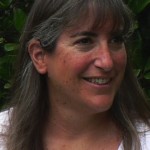 Roberta Millstein is a Professor in Philosophy and Science & Technology Studies at the University of California, Davis. She specializes in history and philosophy of evolution and ecology as well as environmental ethics. Recent areas of research include Aldo Leopold's land ethic and the concepts of population and race; she is also co-authoring a book on the history and philosophy of random genetic drift with Michael Dietrich and Robert Skipper. She has been a member of Ishkabibble since 1994 and is proud to have served the Society in a number of capacities, including Secretary from 2007 to 2011, Listserv Moderator from 2001 to 2011, and Webmaster from 2003-2005. She is currently the Philosophy of Science Association's Women's Caucus Senior Co-Chair and an Elected Member-at-Large of the AAAS's Section on History and Philosophy of Science. She is also an Editor of the online peer-reviewed open-access journal, Philosophy and Theory in Biology.
Roberta Millstein is a Professor in Philosophy and Science & Technology Studies at the University of California, Davis. She specializes in history and philosophy of evolution and ecology as well as environmental ethics. Recent areas of research include Aldo Leopold's land ethic and the concepts of population and race; she is also co-authoring a book on the history and philosophy of random genetic drift with Michael Dietrich and Robert Skipper. She has been a member of Ishkabibble since 1994 and is proud to have served the Society in a number of capacities, including Secretary from 2007 to 2011, Listserv Moderator from 2001 to 2011, and Webmaster from 2003-2005. She is currently the Philosophy of Science Association's Women's Caucus Senior Co-Chair and an Elected Member-at-Large of the AAAS's Section on History and Philosophy of Science. She is also an Editor of the online peer-reviewed open-access journal, Philosophy and Theory in Biology.
Nick Hopwood
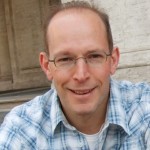 Nick Hopwood is a Reader in History of Science and Medicine in the Department of History and Philosophy of Science at the University of Cambridge, where he runs the Wellcome Trust-funded ‘Generation to Reproduction’ programme that is reassessing the history of reproduction from antiquity to the present day. A former developmental biologist, he is the author of Embryos in Wax: Models from the Ziegler Studio (Whipple Museum, 2002) and Haeckel’s Embryos: Images, Evolution, and Fraud (Chicago, 2015), co-editor of Models: The Third Dimension of Science (Stanford, 2004) and co-curator of the online exhibition Making Visible Embryos (2008). He is a co-director of the Ischia Summer School on the History of the Life Sciences, an associate editor of Journal of the History of Biology and section editor (History) for the new journal Reproductive BioMedicine and Society Online. He participated in ISHPSSB meetings in 1995, 1997, 1999, 2003, 2007 and 2013 and served on the nominations committee in 2003–5.
Nick Hopwood is a Reader in History of Science and Medicine in the Department of History and Philosophy of Science at the University of Cambridge, where he runs the Wellcome Trust-funded ‘Generation to Reproduction’ programme that is reassessing the history of reproduction from antiquity to the present day. A former developmental biologist, he is the author of Embryos in Wax: Models from the Ziegler Studio (Whipple Museum, 2002) and Haeckel’s Embryos: Images, Evolution, and Fraud (Chicago, 2015), co-editor of Models: The Third Dimension of Science (Stanford, 2004) and co-curator of the online exhibition Making Visible Embryos (2008). He is a co-director of the Ischia Summer School on the History of the Life Sciences, an associate editor of Journal of the History of Biology and section editor (History) for the new journal Reproductive BioMedicine and Society Online. He participated in ISHPSSB meetings in 1995, 1997, 1999, 2003, 2007 and 2013 and served on the nominations committee in 2003–5.
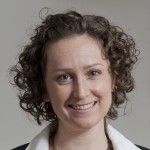 Sarah Richardson
Sarah Richardson
Sarah S. Richardson is John L. Loeb Associate Professor of the Social Sciences at Harvard University. She is jointly appointed in the Department of the History of Science and the Committee on Degrees in Studies of Women, Gender, and Sexuality. A historian and philosopher of science, her research focuses on race and gender in the biosciences and on the social dimensions of scientific knowledge. She is the author of Sex Itself: The Search for Male and Female in the Human Genome (Chicago, 2013) and co-editor of Revisiting Race in a Genomic Age (Rutgers, 2008) and Postgenomics (Duke, 2015).
Suman Seth
Suman Seth is an Associate Professor in the Department of Science and Technology Studies at Cornell University, where he has been since 2004.  Originally trained as an historian of physics, his first book looked at the history of theoretical physics in Germany in the early twentieth century (Crafting the Quantum: Arnold Sommerfeld and the Practice of Theory, 1890-1926. MIT, 2010). His current work examines the history of medicine, science, and colonialism. The manuscript is titled Difference and Disease: Race, Medicine, and Locality in the Eighteenth Century British Empire. He has edited, and written an introduction for, a special issue of Postcolonial Studies on “Science, Colonialism, and the Postcolonial” (2009) and a Forum section of Isis entitled “Re-Locating Race” (2014). His contribution to the latter was entitled “Materialism, Slavery, and the History of Jamaica.” He currently serves on the Osiris editorial board and as an advisory editor for Isis.
Originally trained as an historian of physics, his first book looked at the history of theoretical physics in Germany in the early twentieth century (Crafting the Quantum: Arnold Sommerfeld and the Practice of Theory, 1890-1926. MIT, 2010). His current work examines the history of medicine, science, and colonialism. The manuscript is titled Difference and Disease: Race, Medicine, and Locality in the Eighteenth Century British Empire. He has edited, and written an introduction for, a special issue of Postcolonial Studies on “Science, Colonialism, and the Postcolonial” (2009) and a Forum section of Isis entitled “Re-Locating Race” (2014). His contribution to the latter was entitled “Materialism, Slavery, and the History of Jamaica.” He currently serves on the Osiris editorial board and as an advisory editor for Isis.
Ingo Brigandt
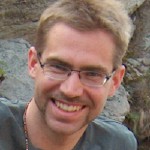 Since graduating from the University of Pittsburgh’s History and Philosophy of Science program in 2006, Ingo Brigandt has been at the University of Alberta in Canada. In addition to being a member of the Department of Philosophy, he is affiliated with the interdisciplinary Program in Science, Technology and Society. In 2012 he received tenure and was promoted to Associate Professor. Last year he became a Canada Research Chair in Philosophy of Biology. Ingo studies biological practice (rather than just theory) from an epistemological and methodological point of view. His approach is to emphasize the role of values in science, including more epistemic values (e.g., particular explanatory aims or debates about standards for what would make a particular scientific framework adequate), but also social and environmental values. The biological domains he investigates are evolutionary developmental biology and related fields, molecular biology, and systems biology. The main topics Ingo has worked on include conceptual change in the history of biology, integration and interdisciplinarity in biology, explanation, science & values, and teaching about the nature of science in terms of changing scientific practices. He has published his research in philosophy, biology, history, and science education journals. Ingo is an Associate Editor of the Journal of Experimental Zoology Part B: Molecular and Developmental Evolution (in charge of conceptual and historical submissions, in particular the journal’s series of historical vignettes), and an Executive Editor of the Canadian Journal of Philosophy (handling philosophy of science papers). From 2011 until 2014 he was an Advisory Board Member of the Canadian Society for the History and Philosophy of Science. Ingo attended his first ISHPSSB meeting as an HPS graduate student in 2003 (Vienna), and from 2013 until 2015 he is a member of the society’s Membership Development Committee.
Since graduating from the University of Pittsburgh’s History and Philosophy of Science program in 2006, Ingo Brigandt has been at the University of Alberta in Canada. In addition to being a member of the Department of Philosophy, he is affiliated with the interdisciplinary Program in Science, Technology and Society. In 2012 he received tenure and was promoted to Associate Professor. Last year he became a Canada Research Chair in Philosophy of Biology. Ingo studies biological practice (rather than just theory) from an epistemological and methodological point of view. His approach is to emphasize the role of values in science, including more epistemic values (e.g., particular explanatory aims or debates about standards for what would make a particular scientific framework adequate), but also social and environmental values. The biological domains he investigates are evolutionary developmental biology and related fields, molecular biology, and systems biology. The main topics Ingo has worked on include conceptual change in the history of biology, integration and interdisciplinarity in biology, explanation, science & values, and teaching about the nature of science in terms of changing scientific practices. He has published his research in philosophy, biology, history, and science education journals. Ingo is an Associate Editor of the Journal of Experimental Zoology Part B: Molecular and Developmental Evolution (in charge of conceptual and historical submissions, in particular the journal’s series of historical vignettes), and an Executive Editor of the Canadian Journal of Philosophy (handling philosophy of science papers). From 2011 until 2014 he was an Advisory Board Member of the Canadian Society for the History and Philosophy of Science. Ingo attended his first ISHPSSB meeting as an HPS graduate student in 2003 (Vienna), and from 2013 until 2015 he is a member of the society’s Membership Development Committee.
For Secretary:
Sean A. Valles
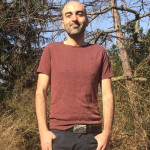 I am an assistant professor at Michigan State University, joint appointed in the History, Philosophy and Sociology of Science faculty in Lyman Briggs College and in the Department of Philosophy. I received my PhD in 2010 from the Indiana University HPS Department. Given the interdisciplinary nature of my own work, I have a particular interest in fostering ISHPSSB’s unique spirit of interdisciplinarity and inclusivity. That is to say, I’m a strong believer in what Werner Callebaut once called “the miracle of ISH Kabibble,” a forum where historians, philosophers, social scientist and biologists come together and cooperate fruitfully. I would like to do my part in contributing to ISHPSSB by serving as secretary. My research is focused on socially relevant philosophy of medicine/biology across a range of topics related to population health, including: the regulation of genomic testing technologies, evidentiary standards in evolutionary medicine, and the role of public health messages in communicating climate change risks. My most recent work includes two articles in public health journals, one on equity considerations in epidemiological research design and another on health policy dimensions of race classification systems. These latter papers were coauthored with public health colleagues I met while working as a visiting scholar at the U. of Edinburgh Center for Population Health Sciences. I am also a co-PI for an ongoing NSF ethics education grant and a co-founder of the Consortium for Socially Relevant Philosophy of/in Science and Engineering. My website has more details, including my CV.
I am an assistant professor at Michigan State University, joint appointed in the History, Philosophy and Sociology of Science faculty in Lyman Briggs College and in the Department of Philosophy. I received my PhD in 2010 from the Indiana University HPS Department. Given the interdisciplinary nature of my own work, I have a particular interest in fostering ISHPSSB’s unique spirit of interdisciplinarity and inclusivity. That is to say, I’m a strong believer in what Werner Callebaut once called “the miracle of ISH Kabibble,” a forum where historians, philosophers, social scientist and biologists come together and cooperate fruitfully. I would like to do my part in contributing to ISHPSSB by serving as secretary. My research is focused on socially relevant philosophy of medicine/biology across a range of topics related to population health, including: the regulation of genomic testing technologies, evidentiary standards in evolutionary medicine, and the role of public health messages in communicating climate change risks. My most recent work includes two articles in public health journals, one on equity considerations in epidemiological research design and another on health policy dimensions of race classification systems. These latter papers were coauthored with public health colleagues I met while working as a visiting scholar at the U. of Edinburgh Center for Population Health Sciences. I am also a co-PI for an ongoing NSF ethics education grant and a co-founder of the Consortium for Socially Relevant Philosophy of/in Science and Engineering. My website has more details, including my CV.
For Treasurer:
Laura Perini
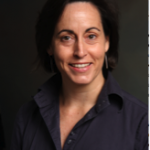 Laura Perini is an assistant professor in the Department of Philosophy at Pomona College, and chairs the Science, Technology, and Society program at the Claremont Colleges. She has a master’s degree in Biology from the University of California at Los Angeles, and received her PhD in Philosophy from the University of California, San Diego in 2002. She studies visual representation in science, focusing on the use of images in the life sciences. Personal motivation: I have benefited greatly from the interdisciplinarity and open, friendly atmosphere of ISHPSSB meetings, and I welcome the opportunity to make a contribution to the Society in return.
Laura Perini is an assistant professor in the Department of Philosophy at Pomona College, and chairs the Science, Technology, and Society program at the Claremont Colleges. She has a master’s degree in Biology from the University of California at Los Angeles, and received her PhD in Philosophy from the University of California, San Diego in 2002. She studies visual representation in science, focusing on the use of images in the life sciences. Personal motivation: I have benefited greatly from the interdisciplinarity and open, friendly atmosphere of ISHPSSB meetings, and I welcome the opportunity to make a contribution to the Society in return.
For Program Co-chairs:
Charbel El-Hani
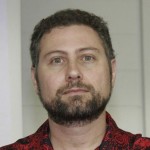 Charbel El-Hani is Associate Professor at the Institute of Biology, Federal University of Bahia, Brazil, where he coordinates the History, Philosophy, and Biology Teaching Lab. He obtained his Bachelor degree in Biology from Federal University of Bahia, in 1992; his Master degree in Education from Federal University of Bahia, in 1995; his Doctoral degree in Education from University of São Paulo, Brazil, in 2000. He worked as a post-doctoral researcher at the Center for Philosophy of Nature and Science Studies, University of Copenhagen, Denmark, with Claus Emmeche, from 2003 to 2004. He coordinates the PRONEX project "Integrating levels of organization in ecological predictive models: Contributions from epistemology, modeling and empirical investigation" (INOMEP), supported by CNPq and FAPESB, which gathers together many researchers fro 5 different universities in eight subprojects. Besides this project, he currently coordinates three other projects supported by CNPq and CAPES. He is the Book Review Editor of the journal Science & Education. He coordinates the science popularization initiative Cafe Scientifique Salvador (http://cafecientificossa.blogspot.com). He is Vice-President of the Brazilian Association for History and Philosophy of Biology (ABFHIB). The lab is linked to a virtual community of practice (ComPratica) and a collaborative research group involving primary and high school teachers, undergraduate and graduate students, preservice teachers, and researchers. Main research interests: Science Education Research, Philosophy of Biology, History of Biology, Evolutionary Biology and Animal Behaviour.
Charbel El-Hani is Associate Professor at the Institute of Biology, Federal University of Bahia, Brazil, where he coordinates the History, Philosophy, and Biology Teaching Lab. He obtained his Bachelor degree in Biology from Federal University of Bahia, in 1992; his Master degree in Education from Federal University of Bahia, in 1995; his Doctoral degree in Education from University of São Paulo, Brazil, in 2000. He worked as a post-doctoral researcher at the Center for Philosophy of Nature and Science Studies, University of Copenhagen, Denmark, with Claus Emmeche, from 2003 to 2004. He coordinates the PRONEX project "Integrating levels of organization in ecological predictive models: Contributions from epistemology, modeling and empirical investigation" (INOMEP), supported by CNPq and FAPESB, which gathers together many researchers fro 5 different universities in eight subprojects. Besides this project, he currently coordinates three other projects supported by CNPq and CAPES. He is the Book Review Editor of the journal Science & Education. He coordinates the science popularization initiative Cafe Scientifique Salvador (http://cafecientificossa.blogspot.com). He is Vice-President of the Brazilian Association for History and Philosophy of Biology (ABFHIB). The lab is linked to a virtual community of practice (ComPratica) and a collaborative research group involving primary and high school teachers, undergraduate and graduate students, preservice teachers, and researchers. Main research interests: Science Education Research, Philosophy of Biology, History of Biology, Evolutionary Biology and Animal Behaviour.
and
Jessica Bolker
 Jessica Bolker is Associate Professor of Biological Sciences at the University of New Hampshire, and affiliated with the Department of Philosophy. She earned a Ph.D. in Zoology from U.C. Berkeley and worked as a postdoc at Indiana University, Bloomington before coming to UNH. Although trained in science, she now works primarily in philosophy of – or for – biology. Her main interests are philosophical issues related to eco- and evo-devo, and to the use of biological models, especially in translational biomedical research. She began attending ISHPSSB meetings in 2005, lured by HPS agents who kept turning up at biology meetings, and hopes to get more biologists to join her.
Jessica Bolker is Associate Professor of Biological Sciences at the University of New Hampshire, and affiliated with the Department of Philosophy. She earned a Ph.D. in Zoology from U.C. Berkeley and worked as a postdoc at Indiana University, Bloomington before coming to UNH. Although trained in science, she now works primarily in philosophy of – or for – biology. Her main interests are philosophical issues related to eco- and evo-devo, and to the use of biological models, especially in translational biomedical research. She began attending ISHPSSB meetings in 2005, lured by HPS agents who kept turning up at biology meetings, and hopes to get more biologists to join her.
Electronic voting and the election process
In 2011, electronic voting was conducted through SurveyMonkey.com under the management of Jim Griesemer. In 2013 we decided to move to the IT support at the Ecology Research Institute from the UNAM, to operate a secure, anomymous, electronic election.
The procedure for voting is that each member in the members’ database will receive an email invitation that looks like the one below, which was sent to me during a test of the system. Those in the members’ database will receive the invitation containing a link to the poll that is tied to the member’s email address from Ana Barahona E. (
We expect to send the listserv notification of the voting dates for the election in the second week of April. The poll will be open for two months, Mid-April to Mid-June. The results will be tallied and presented to the membership during the Members’ Meeting at the Montréal conference in July, 2015.
If you have rigorous spam filters set for your email account, you should make sure you do not filter out email from me, Ana Barahona E. (
The ballot fits on one page. You will check boxes for candidates following the instructions. When you are finished selecting candidates, you click the ‘vote’ button at the bottom of the page, which will take you to a ‘revision’ window. If you click ‘No’, it will take you back to the voting page where you can change your votes. If you click ‘Yes’, you will complete and submit your votes and will then be locked out of the site until voting is complete.
Sample invitation:
As a registered member of ISHPSSB, you are entitled to vote in the 2013 election of officers. Please complete the on-line election by clicking on the link below and following the instructions.
Here is a link to the election page:
login: your email address
Password: YYYYThis link is uniquely tied to this survey and your e-mail address. Please do not forward this message.
Thanks for you participation!
If the link is not "clickable", simply copy and paste the link into the address line of your Web browser (e.g. Firefox, Internet Explorer).
Note: In voting for Council, members choose three of the seven candidates.
